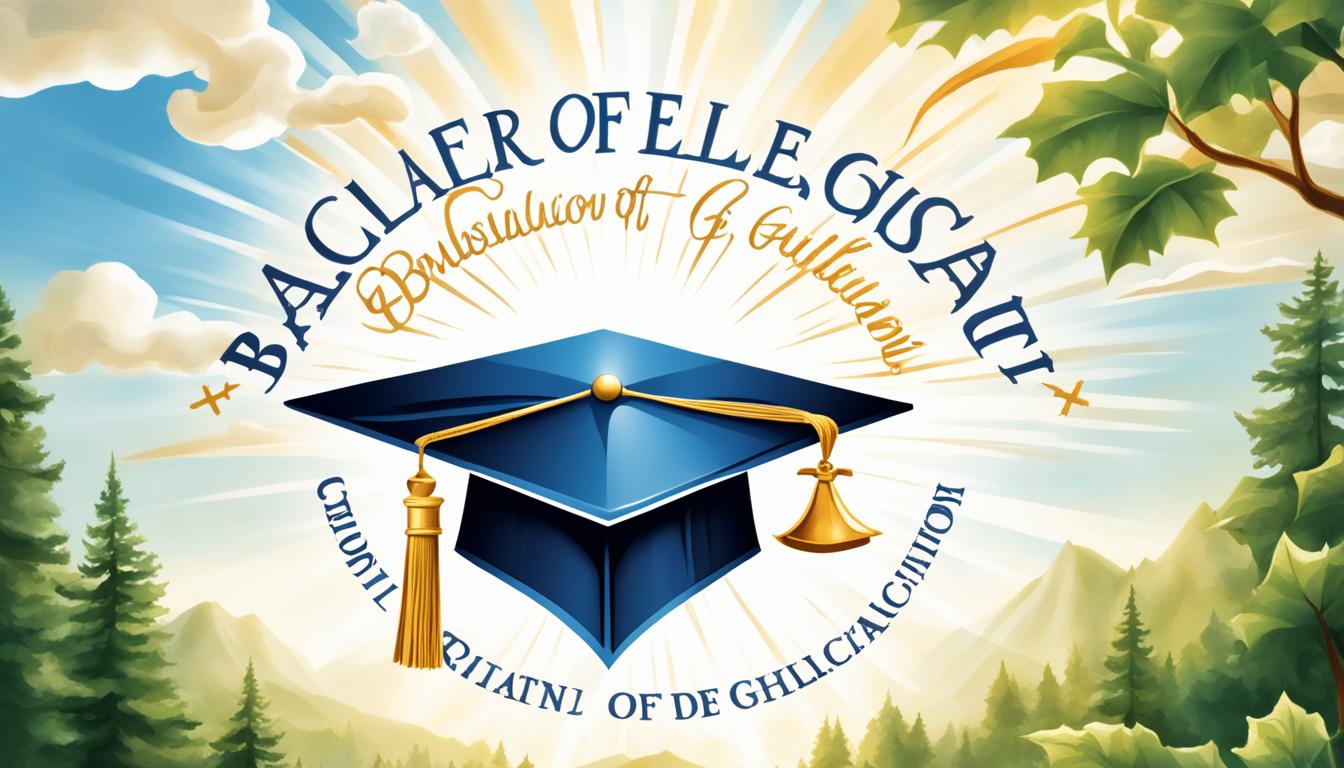The Bachelor of Protestant Theology Religious Education (BPTRE) program dives into the Christian religion. It looks at its history and how it’s practiced today. Students learn to think deeply about religious beliefs and traditions. They also explore how Christianity has grown through time.
This program covers topics like Biblical Theology and Historical Theology. Students study Systematic Theology and Religious Studies too. In this program, they prepare for many career paths in religious education and beyond.
Key Takeaways
- The BPTRE program provides a comprehensive understanding of the Christian religion and its historical context.
- Graduates gain theological skills and the ability to critically analyze religious positions and traditions.
- The program covers areas such as Biblical Theology, Historical Theology, Systematic Theology, and Religious Studies.
- Students develop a deep understanding of Christianity in the context of cultural and religious history.
- The BPTRE program prepares students for careers in religious education, Christian organizations, and related fields.
Program Overview
The Bachelor of Protestant Theology Religious Education program at the University of Oldenburg gives students two options. You can focus on Protestant Theology and Religious Education as your main or second subject. This includes 60 ECTS credits. Or, choose a Minor, requiring 30 ECTS credits, with a Major in another area.
This program helps students understand theology and religious issues historically. It mixes theory with practical work. This prepares students for future jobs in this field. You’ll study subjects like Old Testament, New Testament, and church history, among others.
This course focuses on applying what you learn in real-world settings. It sets you up for jobs in education, media, religious groups, or global organizations. It lays a solid groundwork for your career.
Program Structure
The course layout offers a wide-ranging education in theology and religious studies. It uses different modules to cover various topics. This ensures students get a full view of the subjects. Here’s what the structure looks like:
| Module | Credits |
|---|---|
| Old Testament | 6 |
| New Testament | 6 |
| Church History | 6 |
| Systematic Theology | 6 |
| Practical Theology | 6 |
| Ecclesiastical Law | 6 |
| Religious Education | 6 |
| Study of Religions | 6 |
In addition to mandatory modules, students can go on an excursion and work on two bachelor’s theses. This lets them dive deeper into their chosen fields.
“The Bachelor of Protestant Theology Religious Education program stands out. It blends theory with hands-on practice. Students delve into many theology and education areas, gaining skills for their careers.”
Language Skills and Admission Requirements
If you’re interested in the Bachelor of Protestant Theology Religious Education (BPTRE) program, you need to know a few things. Understanding the language skills and admission requirements is crucial. They help ensure you’re prepared for success in your studies and career.
Language Skills
Want to teach at the Gymnasium level? Then knowledge of Biblical Hebrew, Ancient Greek, and Latin is essential. These languages deepen your understanding of religious texts and traditions. They also help in conducting scholarly research.
No knowledge of these languages yet? No problem! The BPTRE program includes language modules to help you learn. These modules are designed to get you up to speed with the languages you need.
German Language Proficiency
International students must have good German language skills to join the BPTRE program. Being fluent in German is vital for participating in lectures, discussions, and exams.
The BPTRE program’s primary language of instruction is German. A strong command of German allows you to immerse fully in the curriculum. It also helps you blend into the local academic and cultural scene.
Admission Procedures
The admission process for the BPTRE program is straightforward and open. It welcomes applications from those who meet the requirements.
Interested in applying? Remember to submit your application by 15 October for the winter semester. Applying on time is important to ensure your application is considered.
| Requirement | Description |
|---|---|
| Bachelor of Protestant Theology Religious Education (BPTRE) | Completion of a secondary education equivalent to German Abitur or a recognized international qualification. |
| German Language Proficiency | Demonstration of adequate German language skills, usually through a recognized language proficiency test. |
| Application Documentation | Submission of required documents, including transcripts, curriculum vitae (CV), motivation letter, and any additional requested materials. |
| Evaluation and Selection | The application will be evaluated based on academic performance, language proficiency, and other relevant criteria. Successful candidates will be selected for admission. |
Once you’ve got the language skills and met the admission requirements, you’re set for the BPTRE program. This program gears you up with the theological knowledge and skills for a significant role in religious education.
Career Opportunities
Graduating with a Bachelor of Protestant Theology Religious Education opens many doors. You get a strong base in theology and religious education. This lets you dive into various fields where you can truly make a difference.
Let’s look at some careers you might pursue:
- In schools, colleges, and universities, you can teach or manage programs. Your deep knowledge of religion and Christian education will shine here.
- In media and communication, put your theology skills to work. You could create or talk about content linking to religion, spirituality, or ethics. Christian-focused media outlets might also be an option.
- Non-profit organizations and charities value theology backgrounds. Here, you can help with their missions, push for social justice, and offer spiritual advice.
- If interfaith dialogue sparks your interest, there’s work in special organizations. These places aim to bring different faiths together, promote peace, and increase religious understanding in varied communities.
- Academia and research are paths too, for those with a theology degree. You could explore religious themes, write papers, or even author books.
This Bachelor’s degree can also set the stage for more education. Many go on to get a Master’s or Doctorate. They dive deeper into theology or explore related studies.
If teaching in public schools is your goal, look into earning a Master of Education (M.Ed.). This degree arms you with the teaching skills and certificates needed. It prepares you to teach religious education and more in schools.
With your degree in Bachelor of Protestant Theology Religious Education, your impact can be vast. You can foster religious understanding and support others on their spiritual paths.
Study Program and Structure
The Bachelor of Protestant Theology Religious Education program offers an in-depth curriculum. Students learn a lot about theology and its different areas. This program builds a strong base in religious education and gets students ready for theology careers.
Program Structure
This program starts with an Introductory and Orientation Period (STEOP). After that, students move on to important modules in various subdisciplines. These modules include a wide range of topics, like:
- Old Testament
- New Testament
- Church History
- Systematic Theology
- Practical Theology
- Ecclesiastical Law
- Religious Education
- Study of Religions
An excursion is part of the program too. It gives students a chance to see how theological concepts work in the real world.
Bachelor’s Theses
Students must write two bachelor’s theses during the program. These theses let students dive deep into research. They show off their thinking and analytical skills. The theses can be about many topics in Protestant Theology Religious Education, which lets students investigate their interests.
Skills Development
Students gain important skills like critical thinking and analytical reasoning. They also become better at communicating. They learn to look at theological ideas and religious issues in a scholarly way. This helps them join discussions and evaluate information well.

Master’s Program and Future Studies
Once you finish your Bachelor’s in Protestant Theology Religious Education, consider a master’s program. This next step offers in-depth knowledge in theology and religious studies. It prepares you for various future paths, whether in Protestant Theology or Study of Religions.
“The master’s program builds on what you learned in your undergrad. It gives you high-level theological ideas and research skills. It aims to boost your critical thinking, deepen your understanding of religious traditions, and prepare you for roles in academia, research, or teaching.” – Dr. Sarah Johnson, Department of Theology
This program includes specialized courses and seminars focused on certain theological areas. You can study Biblical Studies, Church History, or Comparative Religion, based on your interests and career plans.
Many who finish this master’s program go on to work in academia. They become researchers or professors in colleges worldwide. They also help religious groups, join interfaith talks, and work in community outreach.
Seminar Highlights
- Theology of Liberation
- Comparative Study of World Religions
- Ethics and Moral Theology
- Theological Hermeneutics
- Religion and Society
Completing a master’s also boosts your chance to lead in religious circles. You could become a pastor, chaplain, or education director. The program gives you advanced theology knowledge, critical thinking, and skills for engaging dialogues on faith.
Besides, the Master’s program opens doors for more research, including doctorate studies in theology or similar areas. Whatever your goal, whether it’s adding to theological scholarship, social advocacy through religion, or working in faith-based education, this program offers many opportunities for your career.
Conclusion
The Bachelor of Protestant Theology Religious Education program gives students a strong background in theology and religion. Graduates, including Andrew Johnson and Emma Smith, learn to examine and discuss the Christian faith deeply. They can contribute greatly to religious education.
This program covers many areas, from Biblical Theology to Religious Studies. Students like Sarah Davis and Michael Thompson understand Christianity’s role in history and culture. This knowledge is crucial for their future.
Students, such as Hannah Wilson, find various career paths through this program. They can work in education, media, or organizations that encourage religious talks and understanding. For those wanting more education, like Olivia Lee, the program is a first step toward higher degrees.
They might focus on Protestant Theology or the Study of Religions in their master’s. This helps them do more advanced research and improve their careers in teaching or other fields.
The program’s well-rounded and hands-on approach gets students ready for many fields. Graduates like Benjamin Rodriguez and Julia Anderson can impact education, media, and Christian groups. They work towards better religious understanding, dialogue, and enhancing society.
FAQ
What is the Bachelor of Protestant Theology Religious Education (BPTRE) program?
What are the career opportunities for graduates of the program?
What are the admission requirements for the program?
What is the structure of the program?
Can I continue my studies after completing the Bachelor of Protestant Theology Religious Education program?
Source Links
- https://www.uni-hannover.de/en/studium/studienangebot/info/studiengang/detail/protestant-theology-and-religious-studies-as-subject-in-the-bachelors-teacher-training-course-for-t
- https://uol.de/en/course-of-study/protestant-theology-and-religious-education-2s-bachelor-8
- https://studieren.univie.ac.at/en/bachelordiploma-programmes/protestant-theology-bachelor/

